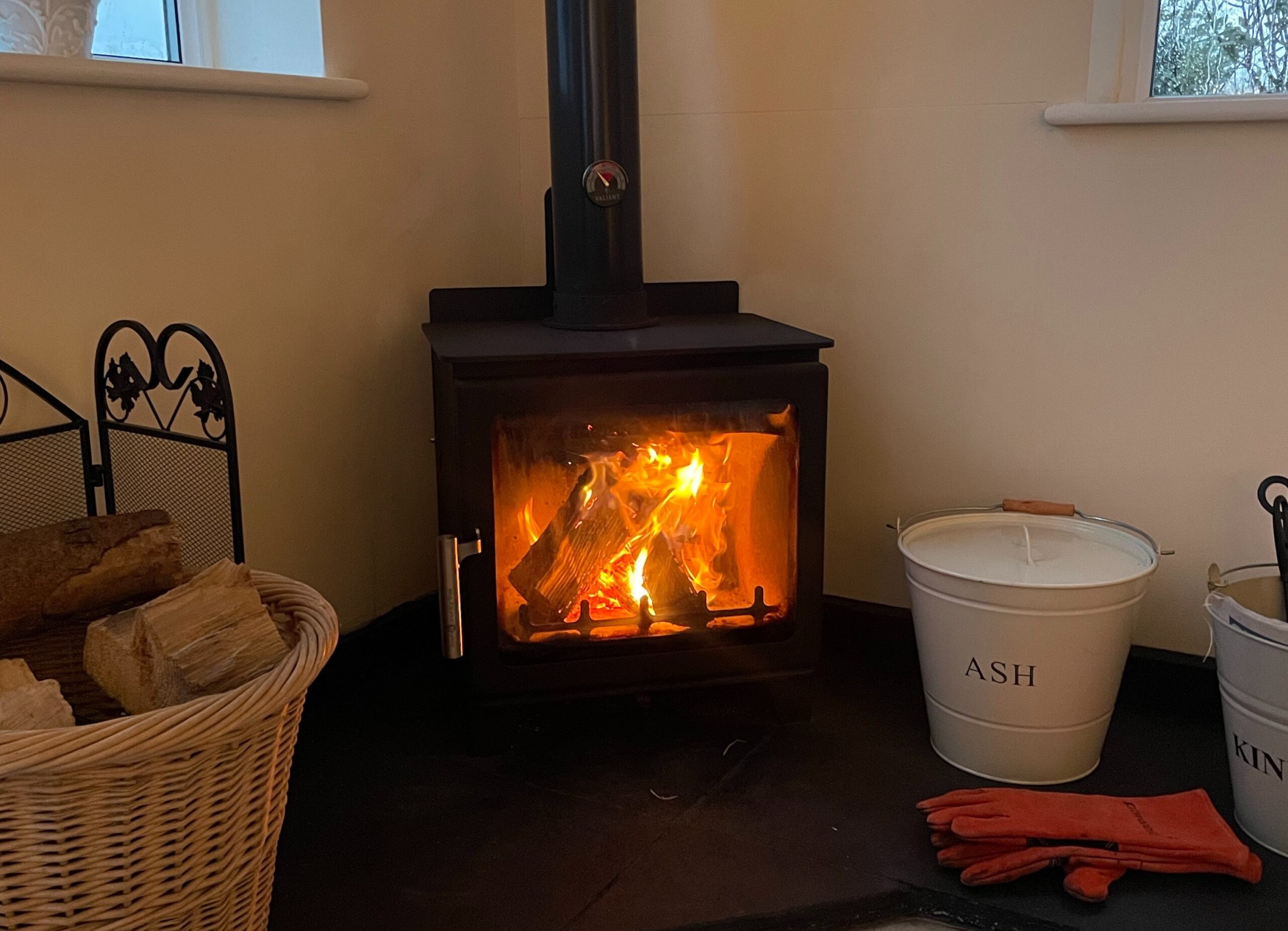
The Log Burner Debate
18 October 2023
The log burner debate has been smouldering for some time, as air pollution and quality is given increasing attention in the news. According to the Stove Industry Alliance (SIA), an estimated 200,000 log burners were installed in the UK in 2022. This represents a 66% increase in sales compared with the third quarter of 2021. The SIA supports DEFRA’s Clean Air Strategy and wants to educate homeowners that the Government is not looking to ban them, but ensure consumers use the most efficient stoves and least polluting fuel.
Log burners and the law
As concerns grow about the impact of log burners on air quality and health, a Guardian article said: ‘..there has been a boom in homeowners installing log burners in recent years. Government figures show toxic pollution from domestic combustion has almost doubled in the past decade, with the chief medical officer warning that even the most modern stoves emit 450 times more pollution than central heating. Research has linked the small particles released when wood is burnt to miscarriages, low sperm count and stunted lungs in children. It can also cause chronic illnesses, cancer and strokes.’
In September 2023, the BBC reported that households in England face fines of up to £300 and even criminal records if they flout new log burner rules. The new rules, which came into force in June 2023, reduce the amount of smoke that new stoves can emit per hour from 5g to 3g. They apply to homes in “smoke control areas” which cover most of England’s towns and cities.
The new rules were introduced in response to growing evidence of the harmful effects of wood smoke on air quality and health. Wood smoke is a major source of particulate matter (PM2.5), which is a mixture of tiny solid and liquid particles that can get into your lungs and bloodstream. PM2.5 has been linked to a range of health problems, including heart disease, stroke, lung cancer, and asthma attacks.
In January 2023, the UK government published its Environmental Improvement Plan 2023, which outlined a number of measures to improve air quality, including a commitment to reduce wood burning emissions. The plan states that the government is “not considering a ban on domestic burning in England,” but that it will “work with industry to develop cleaner wood burning stoves and fuels.”
The government’s plans have been welcomed by environmental groups, but some critics argue that they do not go far enough. They argue that a ban on wood burning in smoke control areas is needed to protect public health.
Log burners emit a number of pollutants into the air, including:
- Particulate matter (PM): PM2.5 is a mixture of tiny solid and liquid particles that can get into your lungs and bloodstream. Even low levels of PM can cause a range of health problems, including heart disease, stroke, lung cancer, and asthma attacks.
- Carbon monoxide (CO): CO is a colourless, odourless gas that can be fatal. It can cause headaches, dizziness, nausea, and vomiting. High levels of CO can lead to unconsciousness and death.
- Volatile organic compounds (VOCs): VOCs are a group of chemicals that can cause irritation to the eyes, nose, and throat. They can also trigger headaches, nausea, and dizziness. Some VOCs are known to be carcinogenic.
Log burners can also emit other pollutants, such as nitrogen dioxide (NOx) and benzene.
What are the health effects of wood burning?
The pollutants emitted by log burners can be especially harmful to people with respiratory conditions, such as asthma and chronic obstructive pulmonary disease (COPD). They can also be harmful to children, the elderly, and pregnant women.
Exposure to wood smoke can cause a range of health problems, including:
- Respiratory problems, such as asthma and COPD
- Heart disease
- Stroke
- Lung cancer
- Eye, nose, and throat irritation
- Headaches
- Nausea
- Vomiting
Wood smoke is especially harmful to children, the elderly, and people with pre-existing health conditions.
How many deaths per year are caused by wood burning?
- In the UK, wood burning is estimated to cause around 4,000 premature deaths each year. In the US, this is estimated at 20,000.
- A study published in the journal Nature found that wood smoke is responsible for around 6% of all global deaths from air pollution.
If you already have a log burner or you’d like to install one, there are several things you can do to reduce the health risks:
- Only use dry, seasoned wood.
- Make sure your log burner is installed and maintained by a qualified professional.
- Open a window or door when you are using your log burner.
- Keep your home well-ventilated.
- Consider using an air purifier. Our range of air purifiers will clean the indoor air within minutes, removing the existing pollutants in the air and those caused by your log burner.
What are alternative fuels?
There are a few different types of fuel that you can burn in a log burner that don’t cause as much pollution as traditional wood. These include:
- Seasoned wood: Seasoned wood is wood that has been dried out for at least six months. It burns more efficiently than unseasoned wood, which means that it produces less smoke and emissions.
- Hardwood: Hardwood burns more cleanly than softwood. Common hardwoods used in log burners include oak, ash, and maple.
- Pellets: Pellets are made from compressed wood sawdust or other biomass materials. They burn very cleanly and produce very little smoke.
- Briquettes: Briquettes are like pellets, but they are made from larger pieces of wood. They also burn very cleanly and produce very little smoke.
The debate over log burners is likely to continue in the coming months and years. As concerns about air quality and health grow, it is likely that we will see more pressure for stricter regulations on wood burning.
Photo by Lewis Ashton, www.pexels.com, 16053753
Latest News

Air purifiers and negative ionizers are the golden partners for the health and wellness environment
Health and wellness refers to the combination of “health” and “health preservation”. Health and wellness environment refers to…

Oxford based air purification experts Healthy Air Technology Ltd recognised at CIBSE Building Performance Awards
News release: Oxford based air purification experts Healthy Air Technology Ltd recognised at CIBSE Building Performance Awards The…

Cloud seeding and air pollution
Recent poor air quality in regions such as Pakistan, China and the UAE has led to the use…

